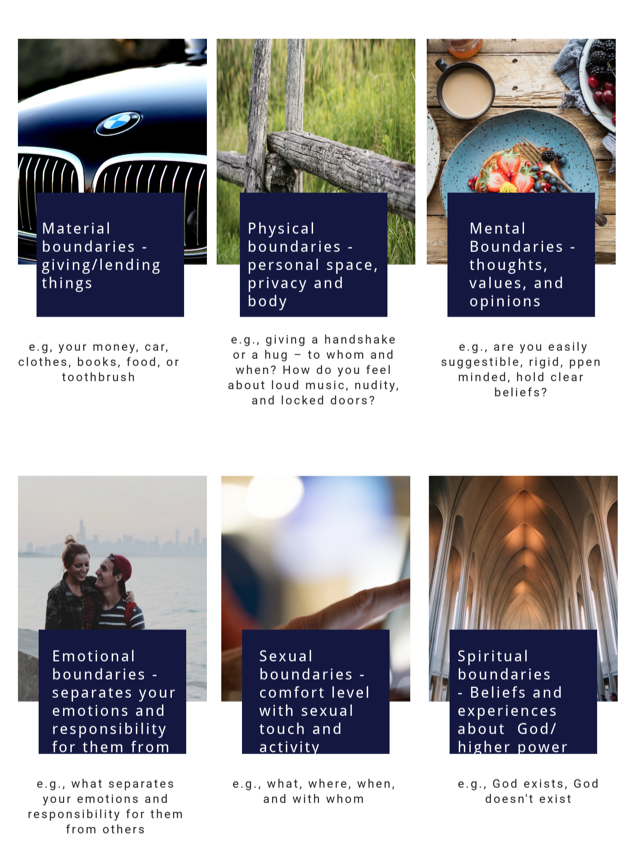Boundaries: “Yes I can.” “No I can't” Simple enough, right?
Patrice Ford Lyn CPC
Are you good at setting boundaries?
Your answer is likely a bit more nuanced than yes or no.
Let ’s unpack it a bit.
Personal boundaries are the physical, emotional and mental limits we establish to protect ourselves from being manipulated, used, or violated by others. How do we know when someone has crossed one of our boundaries?
Two key feelings are cues: discomfort and resentment. If you resent someone for stopping by your desk to complain about their personal life 15 minutes every morning, then you haven’t set a firm boundary. A firm boundary in that situation could be any of the following responses:
“It is so good to see you, let’s catch up later” (and turn around)
“I can’t talk right now” (and go back to working)
“My morning is busy, I will come find you when I have a minute.” See you later.
Does setting boundaries in that example feel tough or easy for you? If it feels challenging, take a look at the 10 ways to build better boundaries. I imagine some steps will feel harder than others. Use that information to understand yourself a little better. What fear, belief, expectation do you hold that makes any step particularly challenging?
Let’s add one more layer of complexity. Do you know someone who is great at setting boundaries? Don’t be so sure. There are six different types of boundaries. It is easy to see someone and say they are good at setting boundaries. But, they may be great at setting work boundaries and have a hard time setting personal boundaries.
Each of us may feel a different level of ease with boundary setting in general as well as boundary setting in different parts of our lives. We can have a different relationship to our emotional boundaries than we do to out mental boundaries. We may have a different relationship between our sexual boundaries and our physical boundaries. Take a look at the infographic and see what feelings arise as you think of boundaries in each of the six areas.
Six Types of Boundaries
Most people have trouble setting a boundary at some point. Are any of these six particularly easy or hard for you? Without judgement, what else have you learned about yourself?
Boundaries are deeply personal. They are influenced by emotional factors that may not even operate at the conscious level. For example, insecurity about work deliverables may lead one to work later than someone who feels like promotion is inevitable. Similarly, someone who is driven by being liked will have a harder time setting boundaries with friends than someone who is attentive to their own self-care.
Boundary setting is also often driven by familial and cultural expectations. “That is not how we do things.” Sometimes we want to set a boundary but feel we can’t. “It’s okay if you don't call me. It is okay if I have no one to talk to. I guess I will just have to talk to myself.” That is a lot of pressure. You can set boundaries without feeling bad. What would make it easier for you to set the boundaries that aren’t driven by fear? A change in perspective can change everything. Let’s talk about it.



